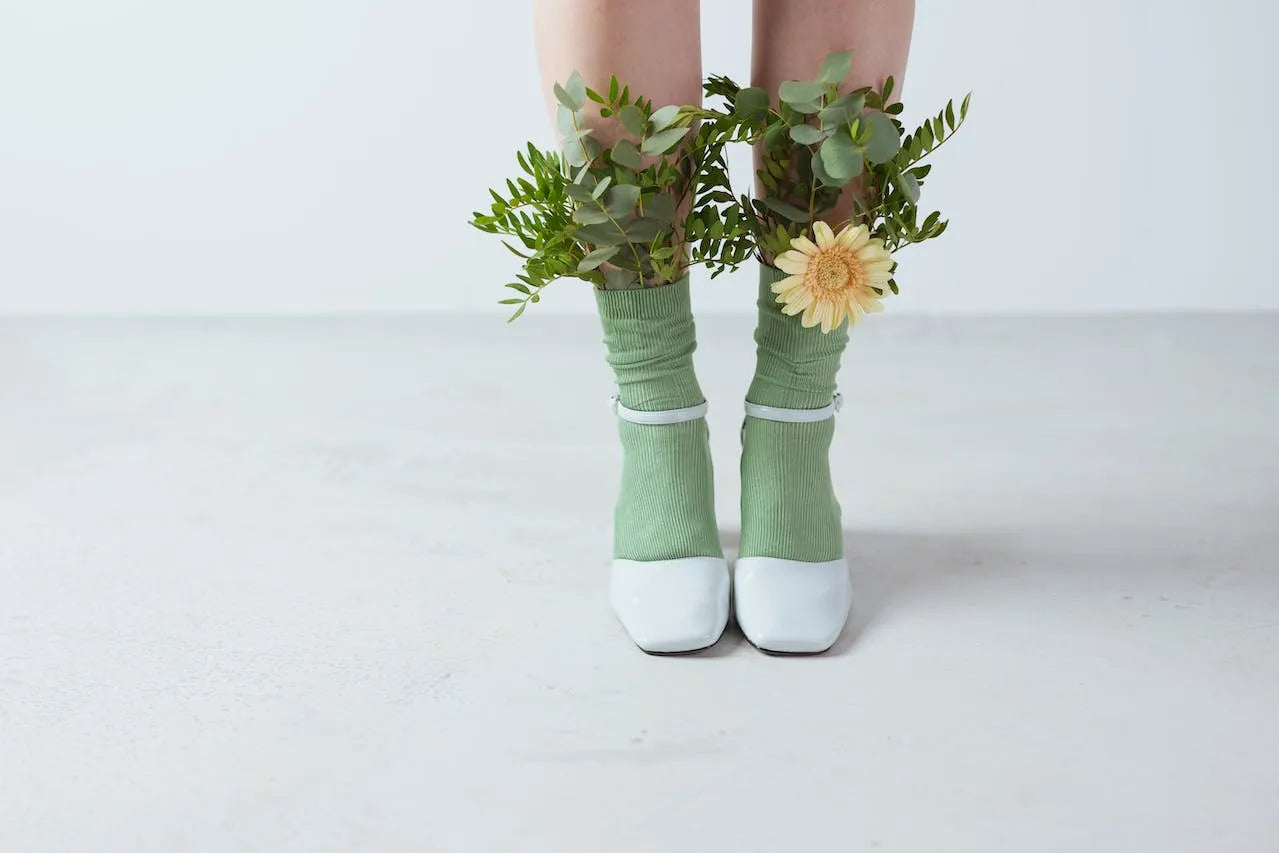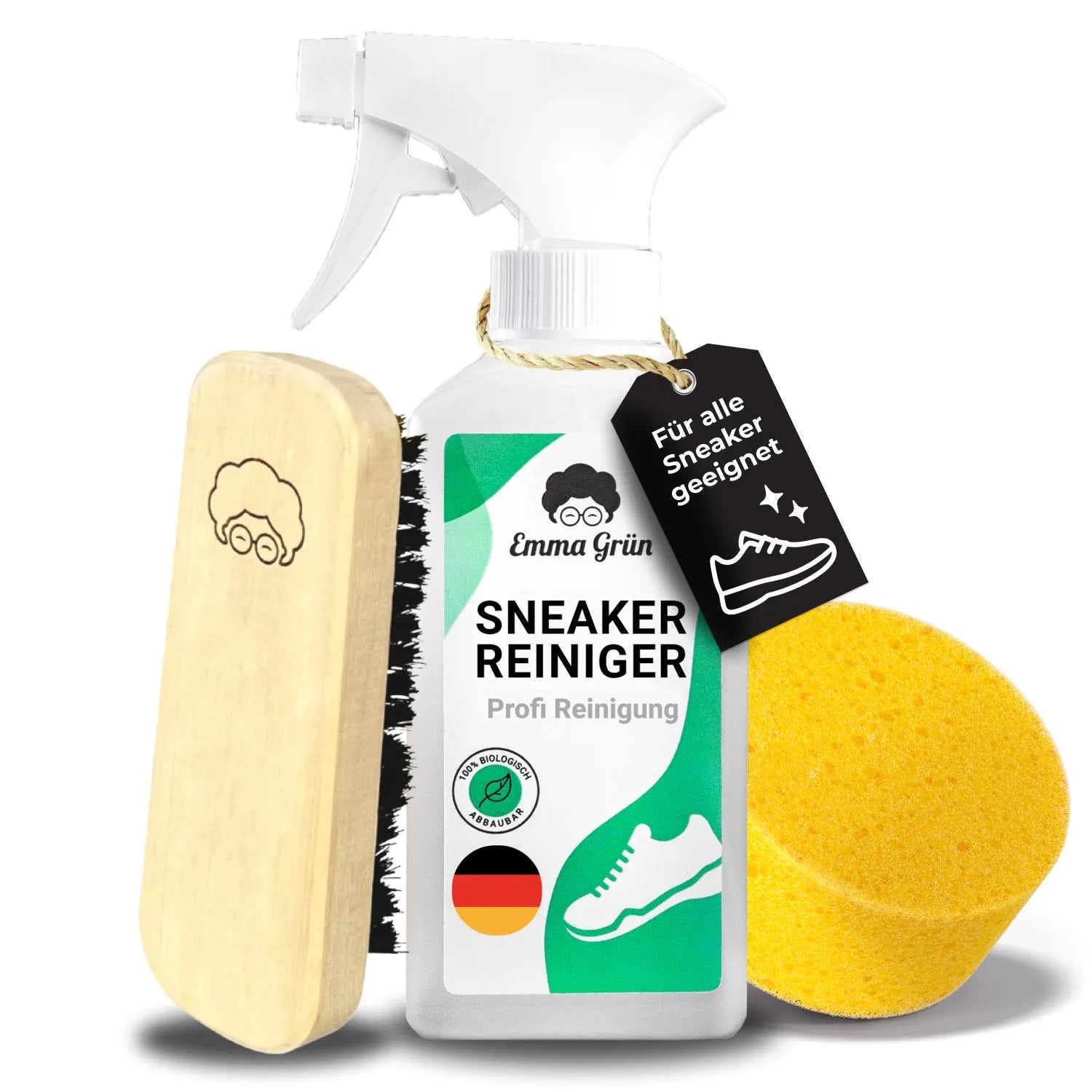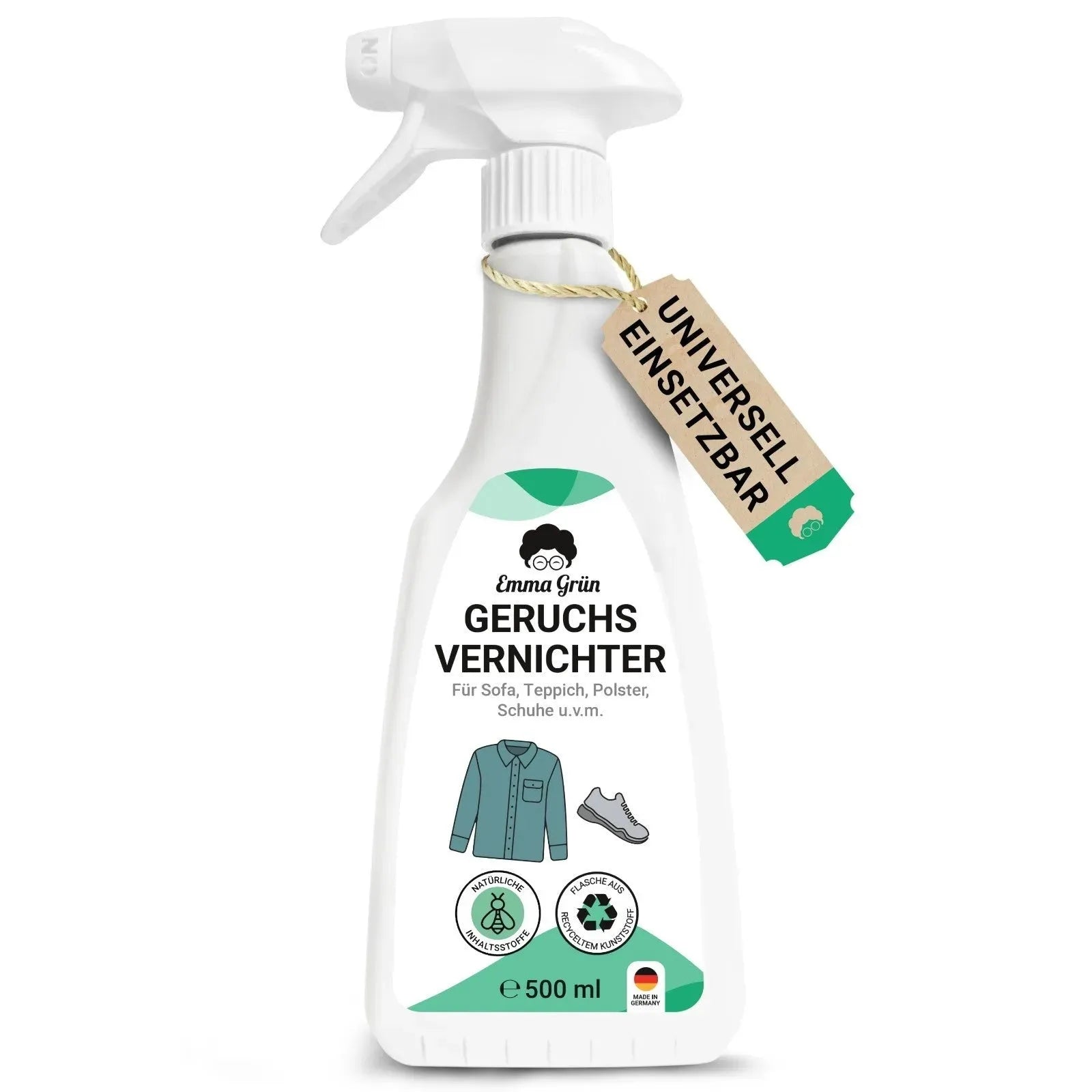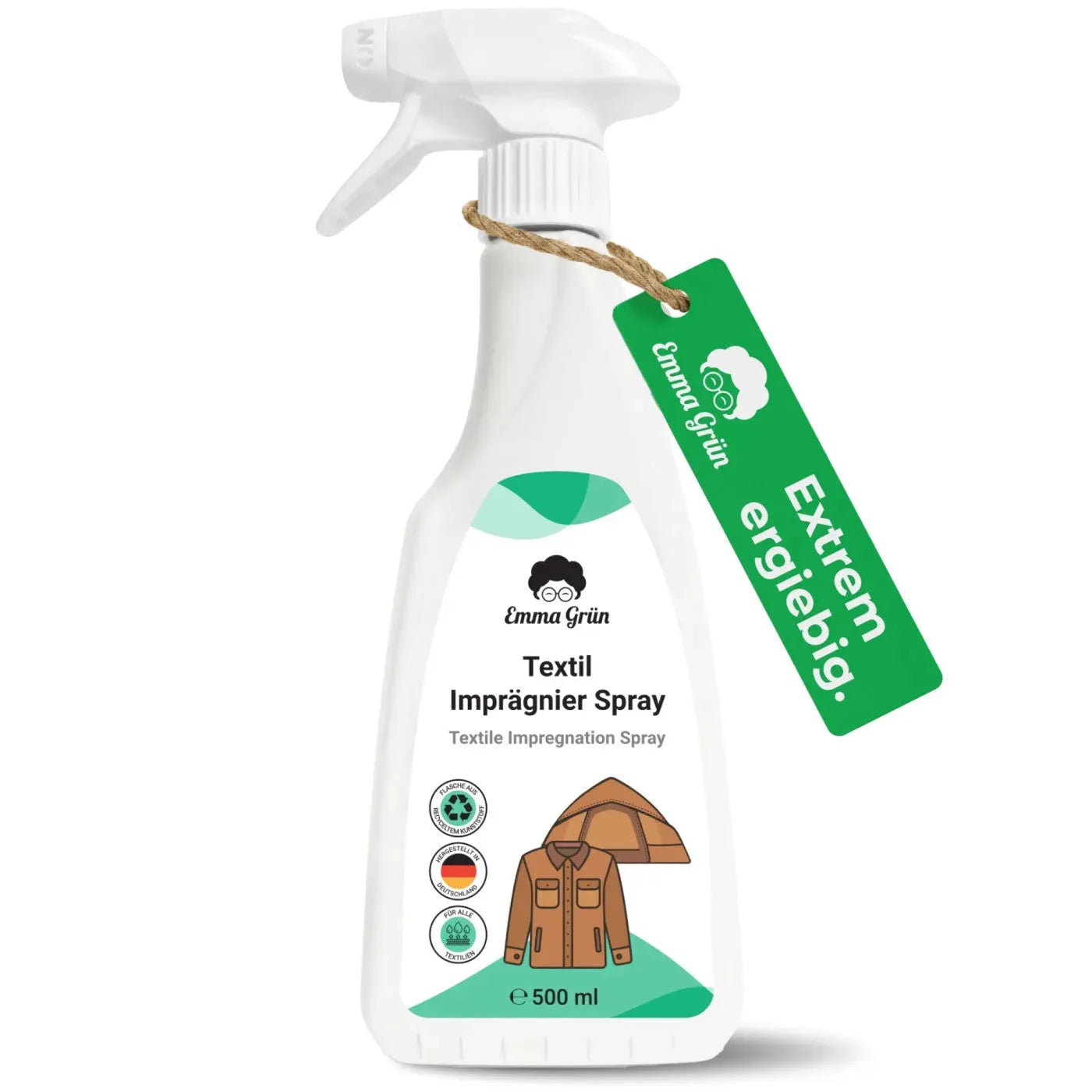It's an everyday problem that many people are familiar with: shoes stink of sweat and are difficult to wear without feeling uncomfortable. Be it after a long day or after exercise. Removing unpleasant odors from shoes can be a challenge. But don't worry, there are proven solutions to combat sweat odor and make your shoes wearable again. In this guide, you will find helpful information on effective methods that will help you eliminate the smell from shoes.
Shoes stink of sweat: the causes
Before we look at the solutions, it is important to understand why shoes smell. The main cause is often sweat that accumulates inside the shoe. Bacteria love warm, humid environments. See for yourself:
- Foot sweat: Feet have a lot of sweat glands - more than any other part of the body, in fact. Sweat itself is odorless, but when it gets trapped in your shoes , it provides a perfect environment for bacteria , which over time will make the inside of your shoes smell unpleasant.
- Bacteria: Microorganisms live in warm, moist environments like the inside of your shoes. When bacteria break down sweat , they produce isovaleric acid , which is responsible for the unpleasant smell .

Image source: Unsplash
- Fungal infections: Conditions such as athlete's foot, a fungal infection of the skin, can equally contribute to bad odor, as fungi also thrive in moist environments and can cause unpleasant odors .
- Lack of ventilation: Shoes that are poorly ventilated or made from materials that do not allow air circulation can contribute to moisture being trapped , making the situation worse.
- Infrequent cleaning: Occasional or inadequate cleaning as well as constantly wearing the same shoes can lead to a buildup of odors .
- Hygiene: Inadequate foot hygiene such as infrequently washing feet or changing socks irregularly can increase odor as sweat and bacteria accumulate.
- Humidity: Wearing shoes in humid environments or allowing water to enter can lead to longer drying times, giving bacteria additional time to multiply.
- Chemical reactions: Certain materials in the shoes can react with sweat and create a bad smell.
The good news is that there are preventative measures and solutions for all of these causes. Regular cleaning, good drying, using foot deodorants and antibacterial sprays, and wearing breathable materials are all part of this and will help keep your shoes fresh.
Shoes stink: what to do?
There are a number of measures you can take to combat the stench . Here are some tried and tested methods to remove sweat odor from shoes:
- Ventilation and drying: Allow your shoes to dry in a well-ventilated area after each use. However, you should avoid drying them near heat sources such as a radiator , as this can damage the material.
- Hygienic insoles: Use antibacterial or anti-odor insoles that are specifically designed to reduce odor while providing comfort.
- Regular washing: Washable shoes and insoles should be washed regularly. To avoid damage to your footwear, we recommend that you follow the manufacturer's care instructions .
- Foot care: Wash your feet daily and wear dry socks to reduce sweat that can get into your shoes.

Image source: Pixabay
- Foot deodorants & talcum powder: Use foot deodorants or powders that are known for their odor-inhibiting properties . This will reduce the formation of odor-causing bacteria that are responsible for the smell of sweat.
- Shoe deodorants: There are special deodorants for shoes that you can use to neutralize the smell .
- Special cleaning products: Use special cleaners and odor removers that have been developed for shoes. Sustainable products such as the odor remover for textiles from Emma Grün are particularly productive as they effectively fight the bacteria and do not just mask the bad smell.
- Freezer: If you can't wash shoes, you can put them in a plastic bag and put them in the freezer overnight. The cold kills bacteria that could be responsible for the smell.
- UV Shoe Sanitizers: UV sanitizers use ultraviolet light to kill bacteria and fungi that live in your shoes and cause bad odors.
- Activated carbon filter: Activated carbon can absorb unpleasant odors very effectively. Simply place the activated carbon filter in your shoes when you are not wearing them. Done!
Emma Green Tip: Remember that the best method for removing odors depends on how bad the shoes smell and what material they are made of. Some measures are more beneficial for light odors and preventative care, while others are better for stubborn odors. Try different techniques to find out what works most reliably for your shoes.
No more smelly shoes: These preventive measures prevent bad smells
Bacteria multiply particularly quickly in humid places and are responsible for the smell in your shoes. But that doesn't have to be the case! With the right tricks, you can fight odor-causing bacteria so that unpleasant smells are no longer an issue . You should carry out the following measures regularly:
- Air out your shoes after each wear.
- Insoles should be changed at regular intervals and replaced with new ones.
- Sprinkle baking soda into your shoes and let the powder work overnight. Vacuum it out the next day. You will see how pleasant your shoes smell from now on. Baking soda is a natural deodorant that not only covers up odors, but also neutralizes them permanently.
But eliminating odors with baking soda is not the only measure you can use to remove odors. The following methods have also proven effective in practice and prevent smelly shoes.
Tip 1: To reduce the build-up of moisture inside shoes, invest in breathable footwear and replacement insoles .
Tip 2: Use antibacterial sprays that are specially designed for shoes and combat odors . For sports shoes and footwear with a textile footbed, we recommend using a sustainable textile freshener. We will answer the question "why" further down in the text.

Image source: Pexels
Tip 3: Always wear socks! This prevents direct contact between your foot and your shoe, which helps to minimize unpleasant sweat odor.
With the help of the tips mentioned, you can prevent unpleasant odors. Regular care and a few simple habits can make a big difference in shoe hygiene and ensure that your shoes always stay fresh. Since we're on this topic, have you ever wondered what distinguishes conventional textile odor removers from sustainable products? We'll enlighten you.
Conventional fabric fresheners vs. sustainable odor removers: what's the difference?
The difference between conventional odor removers and sustainable products lies mainly in the ingredients used, the manufacturing process, the packaging and the impact on the environment during and after the product's lifespan. But how do they differ and which product is better? This is exactly what the following comparison will clarify. The subsequent comparison makes it clear which products should end up in your shopping cart in the future. Form your own opinion!
Conventional odor eliminators
Ingredients & packaging: Standard products often contain harsh chemicals that are powerful against odors, but can also be harmful to the environment . The ingredients are often not fully biodegradable , which means that they remain in the outside world and have a lasting impact on potential ecosystems.
The packaging is also usually not recyclable or made from renewable resources. Products of this type are often produced in factories that do not necessarily use sustainable practices, such as the use of renewable energy.
Effectiveness: Conventional odor removers can sometimes be more effective at eliminating odors immediately. The reason: They contain ingredients that mask the stench for a short period of time . However, they are not suitable for long-term elimination .
Safety: Conventional odor removers can be irritating or allergenic and should be used with caution.
Sustainable odor removers
Ingredients & Packaging: Sustainable products like Emma Grün's Textile Odor Remover contain natural or plant-based ingredients that are less harmful to the environment.
Because they are free of synthetic fragrances, parabens, phthalates and other potentially harmful chemicals, they cause no harm to nature and are biodegradable .
Packaging is often made from recycled materials or designed to be more easily recycled. It is sometimes compostable as well. Production is carried out in accordance with higher environmental standards such as using energy from renewable sources and minimising waste.
Effectiveness: Sustainable products focus on long-term odor control and odor prevention instead of just treating symptoms. They eliminate odor-causing bacteria and combat unpleasant odors in the long term. Their effect is slower and doesn't work from one minute to the next. But they are effective and the stench disappears for a long time and can even be prevented .
Safety: Sustainable products are safer for people and pets , especially those with allergies or sensitivities to chemicals, making them always the better choice.
Emma Green Tip: When purchasing odor removers, it is important to pay attention to product descriptions and certifications that indicate the environmental impact and ingredients.
Conclusion
Eliminating unpleasant odors from shoes is a relevant step to ensure both comfort and hygiene. Prevention is just as important as treatment. Keeping feet clean and dry and always wearing fresh socks can reduce the formation of odors.
It is also important to air the shoes thoroughly after each use to reduce the moisture that serves as a breeding ground for bacteria. Regular cleaning, adapted to the material of the shoes, supports hygiene and freshness. Foot and shoe deodorants can also help to neutralize sweat odor and inhibit the growth of bacteria. Home remedies such as baking soda or coffee powder are tried and tested helpers in the fight against unpleasant odors.
For a more in-depth treatment, freezing the shoes can help kill bacteria and eliminate odors. Rotating shoes regularly also ensures that each pair has adequate time to dry before being worn again.
If you want to be environmentally friendly at the same time, you can use sustainable odor removers that do not contain any harmful chemicals and thus reduce environmental impact. Conscious handling of footwear and the application of these measures lead to fresh, odor-free shoes and increase general well-being.
FAQ: Questions & Answers
How can I remove the smell from my shoes quickly and effectively?
For a quick effect, you can sprinkle baking soda into your shoes and leave it on overnight. This household remedy absorbs the smell and can simply be thrown out the next day.
How do I prevent my shoes from smelling in the first place?
Changing shoes regularly, wearing breathable socks and using foot deodorants can help prevent sweat odor.
Can I freeze my shoes to get rid of the smell?
Sub-zero temperatures can help kill odor-causing bacteria and eliminate odors. To do this, put your shoes in a plastic bag and put them in the freezer overnight.
Can insoles help control shoe odor?
Antibacterial or anti-odor insoles can be very effective in controlling odor and preventing the buildup of bacteria.
Which materials in shoes tend to develop less odor?
Materials such as genuine leather, cotton and certain synthetic fabrics, which are known for their breathability, tend to develop fewer odors because they are better at wicking away moisture.
Sources
1. Shoes stink – https://www.oekotest.de/kosmetik-wellness/Schuhe-stinken-Diese-4-Hausmittel-helfen-bei-mueffelnden-Schuhen_10682_1.html
2. Shoes stink: Five household remedies remove odors in no time – https://www.merkur.de/leben/wohnen/haushaltstipps-schuhe-stinken-hausmittel-entfernen-gerueche-backpulver-natron-zitrone-zr_92492397.html
3. Smelly shoes: These tips will help! – https://www.peek-cloppenburg.de/de/s/ratgeber/tipps/stinkende-schuhe
4. Smelly shoes? This helps against the bad smells – https://www.chip.de/news/Stinkende-Schuhe-Das-hilft-gegen-die-ueblen-Gerueche_184476883.html
5. Shoes stink: What to do? – https://www.stern.de/lifestyle/schuhe-stinken--was-tun--so-klappt-es-am-besten-33312784.html




